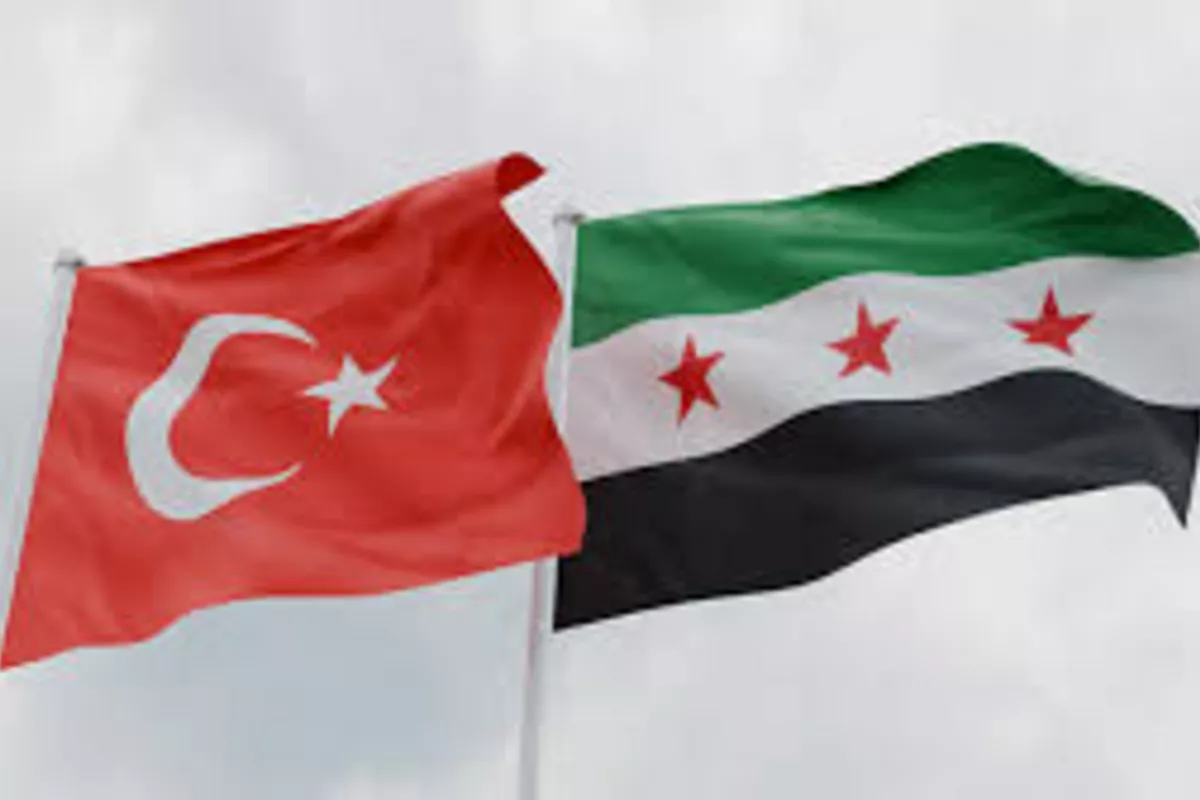
photo: Arab Center Washington DC
When the President of Türkiye promises not to allow the fragmentation of Syria, it reads both as a foreign policy declaration and as a challenge to the region’s trajectory. It touches on the redrawing of spheres of influence, concerns over a “Syrian PKK,” Ankara’s delicate balancing act with Washington and Tel Aviv, and the risks this stance poses within Türkiye itself.
Why has patience given way to readiness for a military scenario, and what does this mean for regional stability? Today, we explore these critical questions with Turkish expert and Professor of International Relations Hüsamettin Inaç.
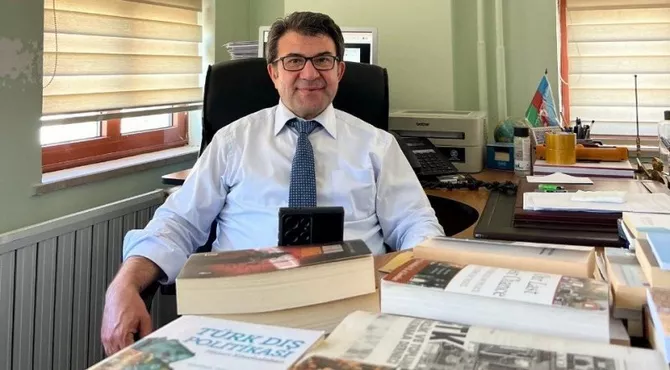
Photo: Husamettin Inac, Turkish expert, Professor of International Relations
- President Erdoğan has stated that Türkiye will not allow the fragmentation of Syria. How realistic is such a strategy of stability for Türkiye, given Syria’s current destabilization - its southern crossroads and the de facto collapse of state control? What risks and contradictions does this create within Türkiye itself?
- Türkiye views the situation in Syria as a critical issue for preserving stability and maintaining a unified state structure. If, as Israel hopes, Syria were divided, fragmented, or governed by decentralized entities with special status, this would be highly unfavorable for the PKK, which claims to represent Kurds in Türkiye. Such developments would seriously disrupt efforts to create a terrorism-free zone and to normalize the region. For this reason, Türkiye will never allow them.
So far, Türkiye has acted with strategic patience for two main reasons. First, it has avoided direct intervention, preferring instead to support the interim government formed on December 8, 2024 - led by Ahmed al-Sharaa - and the existing state institutions. Second, given the close relations between Trump and Erdoğan, Türkiye exercised patience, seeking to pursue its objectives in coordination with the international system and the United States.
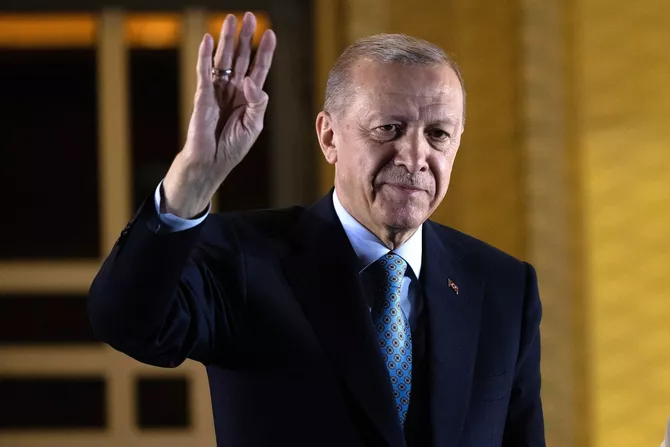
photo: CNN
But now, as you noted, Israel - particularly through the Druze - has initiated a separatist process in the south. As this movement began to spread to the northeast, to the area known as “Rojava,” where the PKK/YPG operates (which I prefer to call the Syrian PKK), it became clear that this integration contradicts the March 10 agreement.
Since yesterday, Türkiye has begun actively strengthening its positions, and there are visible signs of a new operation being prepared. Türkiye will not allow these contradictions to persist. Having exhausted all diplomatic and negotiation methods, it reserves the right to use military force as a last resort. Personally, I believe we are moving rapidly in that direction - negotiations with the U.S. and Israel have failed, and to prevent the integration of the Syrian PKK, a military operation in northeastern Syria may begin soon.
- How do you assess Türkiye’s current response, as well as that of other Arab countries, to these developments? Can it be said that Ankara is using this crisis to regain diplomatic initiative in the region?
- Especially in northeastern Syria, where the PKK, YPG, and PYD operate under the umbrella of the Syrian Democratic Forces (SDF), the regional state with the greatest influence - after Israel - is Saudi Arabia. Contrary to popular belief, the population in this area is not primarily Kurdish but consists largely of Bedouin Arabs. This means that within the armed or militia formations of these organizations - or structures sheltering under them - there are significant numbers of Bedouin Arabs, over whom Saudi Arabia wields considerable influence.
Unfortunately, Saudi Arabia does not cooperate closely with Türkiye in this area. If it did, separating these Arab Bedouins from the organization would be far easier.
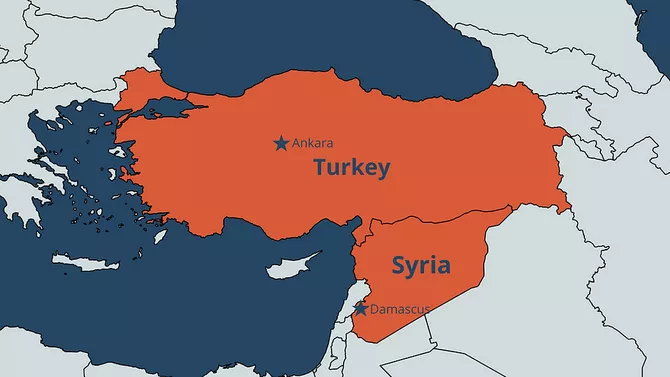
Source: Daily Sabah
On the other hand, the main countries financing Syria’s reconstruction are Saudi Arabia and, alongside it, the United Arab Emirates. Unfortunately, the UAE has pursued - and continues to pursue - policies aligned with Israel and the U.S., which do not ease Türkiye’s position. While they may rhetorically support Syria’s territorial integrity, in practice, remaining aligned with Israel and the U.S., they appear to view partition as an acceptable option.
As a result, Türkiye receives little regional support aside from Qatar. Its recent economic crisis also limits its ability to provide further assistance to Syria. The supply of Azerbaijani natural gas to the region, and its use in Syria, has given Türkiye significant prestige. Under these circumstances, however, if Türkiye carries out a military operation and decisively dismantles this dismantles this terrorist organization, its influence and standing on the Syrian issue would grow even further.
- How does Türkiye view its involvement - or non-involvement - in local community conflicts in Syria? Is there a risk of being drawn into yet another “hot spot” on its border?
- Until now, Türkiye has preferred not to intervene in these local conflicts, mainly out of respect for the al-Sharaa government and its desire to maintain independence and sovereignty. However, al-Sharaa’s forces are currently not strong enough to manage these local communities, and, as expected, the U.S. did not provide a positive response during negotiations. For this reason, Türkiye has effectively reached the brink of open armed conflict - and the risk of escalation remains.
- In light of overlapping interests such as strikes in Syria and the protection of the Druze, how does Ankara balance criticism of Israeli policy with the need to avoid being drawn into direct conflict?
- Up to now, Türkiye has avoided taking sides, preferring a passive stance and strategic patience to prevent a regional conflict. However, I do not believe this patience can continue. Israel is acting in the region as a hegemonic power: it intervenes in Syria at will and exerts influence over the Druze, Kurds, and the PKK. Türkiye cannot tolerate this any longer. As a result, a military operation is likely to be on the agenda soon, and Türkiye may have to abandon the balancing policy it has pursued until now.
- What role can and does Türkiye want to play in the return of Syrian refugees? How realistic are its intentions to serve as a “bridge” for reintegration, and what internal and external obstacles lie ahead?
- Essentially, Türkiye wants refugees to return to Syria as soon as possible. The main goal is to ensure that, within the framework of the new state structure, these citizens can contribute to their country by applying the experiences they have gained abroad.
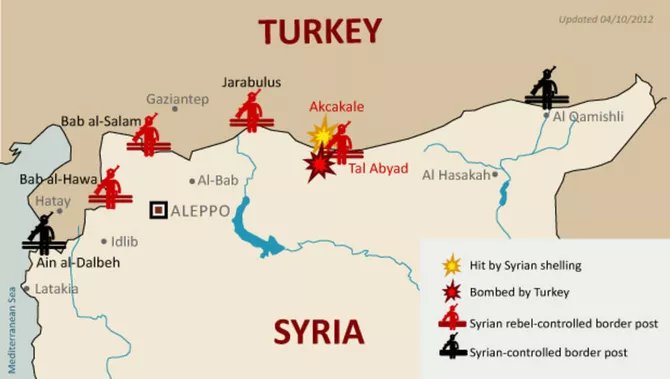
Photo: AA
But there are significant obstacles. First, real security in Syria has not yet been established, and the al-Sharaa government does not have full control over all groups. Additionally, returning refugees have no guarantee that they will find their homes and land intact. The country must be rebuilt so that refugees can return to live in peace and security and find employment to ensure a decent livelihood. This will only be possible with external investment.
- Why has Türkiye, which has traditionally resisted, now joined other countries in urging Hamas to “accept”? Is this a strategic reassessment or a tactical maneuver?
- I believe there is a significant difference between the text presented to President Recep Tayyip Erdoğan and the agreement published today. Both Israel and the U.S. have acknowledged this discrepancy, as what was discussed at the Washington summit with Muslim leaders differs substantially from the text that emerged. In particular, there is no mention of creating an independent Palestinian state. It is also unclear according to what timetable Israeli forces would withdraw, or what strategy Israel would adopt if hostages are released and Hamas lays down its arms and leaves the region.
Under these conditions, I personally do not believe Hamas will accept this proposal. I expect that Türkiye will negotiate in the next three or four days to return to the previous text and remove provisions directed against Hamas and Gaza from the agreement.
- Considering Türkiye’s activity on the Syrian front, its role in the Palestinian issue, and its tensions with Israel, how would you assess its reputation in the Arab world and the West? Does it risk being drawn into competition with Iran, Saudi Arabia, and Egypt for regional influence?
- In the current situation, especially following President Erdoğan’s meeting with Trump in the Oval Office and the manner of his reception, our President’s influence in the Middle East has increased significantly. Initially, Türkiye struggled to assert its positions on some political issues, including Syria, but this meeting strengthened hopes for achieving those goals.
Against the backdrop of talks by Muslim leaders on Gaza, the fact that Erdoğan and Trump sat at the same table can be seen as recognition of Erdoğan’s leadership in the region. In this sense, Türkiye has the potential to play a more active role in the near future on issues in Syria, Gaza, and the broader Middle East, positioning itself as a regional leader.
Share on social media